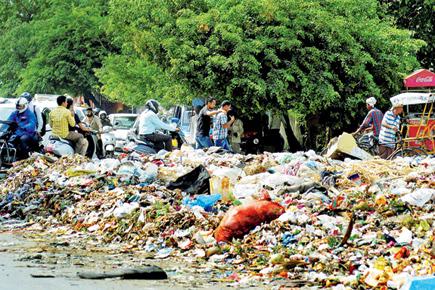Can the term urban decay factually be used on Indian cities? Logically, for ‘decay’ to set in there should have been, at some point of time in recent history, a degree of glory

 Can the term urban decay factually be used on Indian cities? Logically, for ‘decay’ to set in there should have been, at some point of time in recent history, a degree of glory. But if you go back a hundred years or so in history, documents of civic planners show a sense of dismay of Bombay, Delhi and Calcutta getting over populated and difficult to govern. The cities have been renamed, foreign rulers sent back packing, glorious slogans and goals been coined. We are going to have a hundred smart cities soon. But not too soon it appears.
Can the term urban decay factually be used on Indian cities? Logically, for ‘decay’ to set in there should have been, at some point of time in recent history, a degree of glory. But if you go back a hundred years or so in history, documents of civic planners show a sense of dismay of Bombay, Delhi and Calcutta getting over populated and difficult to govern. The cities have been renamed, foreign rulers sent back packing, glorious slogans and goals been coined. We are going to have a hundred smart cities soon. But not too soon it appears.
ADVERTISEMENT

Residents dumped garbage on a road near Nirman Vihar metro station as MCD workers went on strike. Political parties passed the buck; each blaming the other for the decaying rubbish in the capital of the largest democracy in the world that is pitching to be a wannabe super power in the region. Pic/PTI
One year into the new government, there was a garbage crisis in the country’s capital last week. Political parties passed the buck; each blaming the other for the decaying rubbish in the capital of the largest democracy in the world that is pitching to be a wannabe super power in the region. Across newspapers and TV channels around the world, ghastly visuals of mounds of garbage played out. Reporters chugged out facts and figures of how many Indians defecate in the open, how many don’t have access to water and electricity. How barely a few miles from the Indian parliament garbage was mounting without being cleared because Parliamentarians couldn’t care less.
If you can’t provide clean water, clean air, motorable roads, safe and efficient public transport, uninterrupted electric supply and access to basic education near place of residence, health services to the needy, the Smart Cities project will be a mere bombastic announcement. In a majority of India’s 53 metropolitan cities people do not get any, or most of what is seen as basic facilities elsewhere in the world…even if they can pay for it.
In developed countries when studies are conducted on most livable cities the matrix consists of things like access to a coffee shop near place of work, pubs and curry take-outs near the residence, two or three bedroom homes and parking lots. In India, we are far, far away from such parameters.
It must be appreciated that at least the Prime Minister spoke about the need for all this from the Red Fort on 15th August. At least there is an awareness that unless we are able to provide a respectable quality of life to our rural and urban poor and middle class, we can ill afford to claim leadership in the region.
Our urban planners are already a hundred years or so behind schedule. Mere tokenism and grandiose naming of projects have been the way India dealt (not) with its urban decay. How does one even begin from that point? From the basics. Make structural changes in the mega cities, housing for poor, roads and metro-trains that connect suburbs to inner cities, work with private players for hospitals and schools near housing areas. Shops and business establishments must have access to uninterrupted electricity, water, internet connectivity to ensure that citizens have services which provide a dignified way of life.
There are many challenges for the 100 smart cities project. First is to battle lethargy and cynicism. We have a way of brushing off almost everything with “just not possible” because the enormity of numbers in our country…too many mouths to feed, too many homeless, too many girls killed for dowry, too many denied access to facilities due to caste or religion. But had the enormity of our problems dispirited our founding fathers we would not have gone out of the cycle of famines and droughts.
Reportedly about R50,000 crores have been set aside for the smart cities project. Hopefully our cities will be dug out of the massive garbage mounds that they have become. The last thing we need is some epidemic spreading in our cities like in Surat in 1994. Some 400,000 to 600,000 fled the city in four days when three people were afflicted with suspected pneumonic plague. An international public emergency was declared even before details emerged. There was panic in the country when information was limited and several countries imposed plague-related travel restrictions on Indian travellers.
The WHO team which investigated the plague in Surat, did not find any conclusive laboratory evidence of the disease organism but the damage had been done. India’s image had taken a severe hit. Businesses took several years to recover.
Garbage crisis in many cities have reached a major crisis levels. Bureaucrats and politicians who live in sylvan surroundings don’t see it and don’t live with these issues on a day-to-day basis. Sweeping little amounts of garbage daintily in your Kanjeevarams or blue jeans is not going to solve this issue. It needs more than commitment now.
Smita Prakash is Editor, News at Asian News International. You can follow her on twitter @smitaprakash
 Subscribe today by clicking the link and stay updated with the latest news!" Click here!
Subscribe today by clicking the link and stay updated with the latest news!" Click here!











